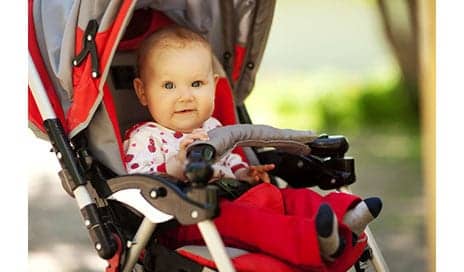A Nationwide Children’s Hospital study, published in Pediatrics, estimates that every 8 minutes in the United States, a child 3 years of age or younger is treated in a hospital emergency department for a nursery product-related injury.
In the study, researchers from the Center for Injury Research and Policy at Nationwide Children’s Hospital examined injury data from January 1991 through December 2011.
The injuries seen in the study were commonly associated with baby carriers (20%), cribs/mattresses (19%), and strollers/carriages (17%). The injuries typically occurred at home (88%), and most (80%) were due to a fall. In addition, the majority of the injuries were to the head, face, or neck (81%), according to a media release from Nationwide Children’s Hospital.
During the early years of the study, the researchers observed a significant decline in injuries, which they attributed to a decrease in injuries from baby walkers. However, they note that nursery product-related injuries steadily increased, rising nearly 25%, in the last 8 years of the study, the release adds.
“We have achieved great success in preventing baby walker-related injuries by improving the design of the product and instituting better safety standards” says Gary Smith, MD, DrPH, the senior author of the study and director of the Center for Injury Research and Policy at Nationwide Children’s Hospital, in the release.
“We now need to aggressively apply this approach to other nursery products. It is unacceptable that we are still seeing so many injuries to young children from these products,” he adds.
“Many of the injuries associated with nursery products are to the head or face,” states Tracy Mehan, manager of translational research at the Center for Injury Research and Policy. “For children this young, these can be quite serious. Of particular concern was the increase in the number and rate of concussions in recent years.”
In light of this data, the researchers suggest parents with young children follow the following protocol to help prevent such injuries from occurring among their children. Dubbed “the 4Rs,” they suggest that parents do their research to determine the nursery products that are most safe; check to see if the product they are considering has been recalled; register their product with the manufacturer post-purchase to ensure notification if it is recalled; and read the manual to familiarize themselves with how the product works, and to confirm that the product is the right one for their child’s age and size.
[Source(s): Nationwide Children’s Hospital, Science Daily]





